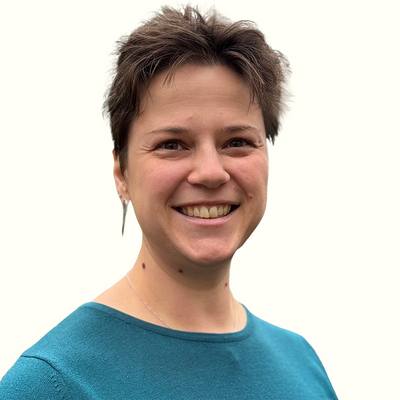
Dr Michelle Strickland
Senior Research Assistant
I made an exciting move when I transferred to the Anderson group (part of the Human Genetics Programme) in July 2021, with promotion to Senior Research Assistant November 2022. I joined the group to assist with the dissociation and preparation of gut biopsies for single cell 10X sequencing as part of an inflammatory bowel disease project and we are now running a national clinical observational study to compare the efficacy of different treatments in use today. Over the next few years I will help the lab team scale up molecular work on patient samples, where we expect to introduce liquid-handling robots and work very closely with the BioResource team to store samples received from across the UK.
I joined Sanger in 2019 to help establish the Tree of Life Core Laboratory as part of the newly-formed Tree of Life Programme, a UK-wide initiative to sequence the genomes of all 60,000 eukaryotic species in the British Isles. I experimented with cryogenic disruption and whole nucleus extraction methods, working with a very wide variety of samples (including but not limited to arthropods, molluscs and plants). I extracted high-quality, high molecular weight DNA and prepared DNA for sequencing on PacBio and Oxford Nanopore Technologies platforms. I also prepared HiC libraries for sequencing on Illumina HiSeq.
I was seconded to Sanger Scientific Operations between March – June 2020 as part of a research and development team looking into multiplex sequencing of the COVID-19 virus on long-read platforms, where I tested primer-skipping combinations and prepared sequencing libraries for Oxford Nanopore and PacBio platforms.
As a PhD researcher in Sara Goodacre’s SpiderLab at the University of Nottingham I studied the genetic, molecular and structural properties of spider silk. In particular I examined the silken webs spun by the diving bell spider Argyroneta aquatica, the only spider in the world able to live an aquatic lifestyle – hunting, feeding, mating and reproducing underwater. I gained experience in transcriptomics, de novo DNA assembly, phylogenetics, scanning electron microscopy, tensile testing and spider husbandry, and published a first-author research paper.
In 2021 I was the team captain for the Genome Generators as part of a Darwin Tree of Life/Schools@I’m A Scientist event, participating in online chat rooms with secondary and sixth-form students. I have given public talks on my own and colleagues’ research, including as part of PubHD and Pint of Science and at the technology festival EMF camp and have also featured on the BBC’s Science In Action and the Nature Heredity podcast.
My timeline
Promotion to Senior Research Assistant, Anderson Group
Joined Anderson group, Sanger Institute, Cambridge, UK
Darwin Tree of Life Programme, Sanger Institute, Cambridge, UK
Research Assistant in the Bowman group, University of Aberdeen, UK
Resumed BBSRC PhD, University of Nottingham, UK
Research Scientist, Shanghai Jiao Tong University, China
Started BBSRC PhD, University of Nottingham, UK
Undergraduate degree with integrated Masters, University of Nottingham, UK